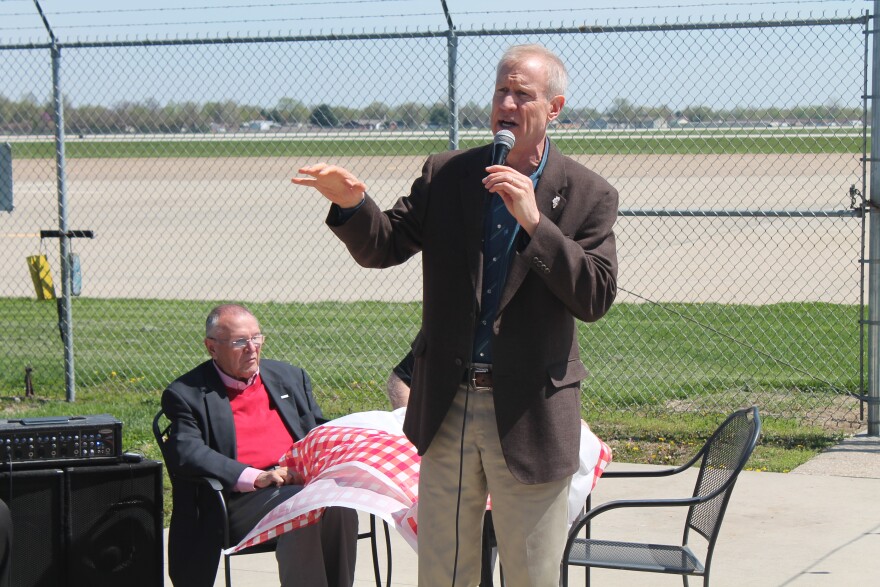After two years without a budget and under threat of “junk bond” status, Illinois Democrats finally convinced enough Republican lawmakers to break with Republican Gov. Bruce Rauner on Tuesday.
Rauner vetoed the budget as expected. The Senate quickly overrode him, and the House will try to follow suit Thursday.
What would be the state’s first full budget in years includes an unpopular income tax increase.
The measure would increase the state income tax from 3.75% to 4.95%. The income tax rate was raised temporarily to 5 percent in 2011, before falling to current levels in 2015.
Dale Righter of Mattoon is the only Republican senator who was persuaded to vote for it.
“Every dollar that we throw onto the backlog of bills is another dollar that the next generation has to pay for even though we got to spend it,” said Righter, whose district includes Eastern Illinois University, which has struggled with falling enrollment and layoffs during the two-year budget impasse.
Fellow Republican Chapin Rose of Mahomet voted against the budget measures, saying in a news release that the General Assembly had been close to agreement on other issues important to Rauner.
"We were, literally, within hours of a break-through agreement — one that would have fundamentally, and forever, put Illinois on a positive trajectory toward fiscal integrity," Rose said.
The budget plan totals $36.1 billion, and includes a 10-percent cut for higher education compared to FY 2015 levels.
But in a statement, University of Illinois president Tim Killeen was supportive of the plan.
"This financial support is crucial to ensure the continued excellence of the University of Illinois System, which enrolls more than 81,000 students and plays a key role in economic development for our state," Killeen said. "Thankfully, the budget also includes restoration of MAP funding for thousands of students across the state."

